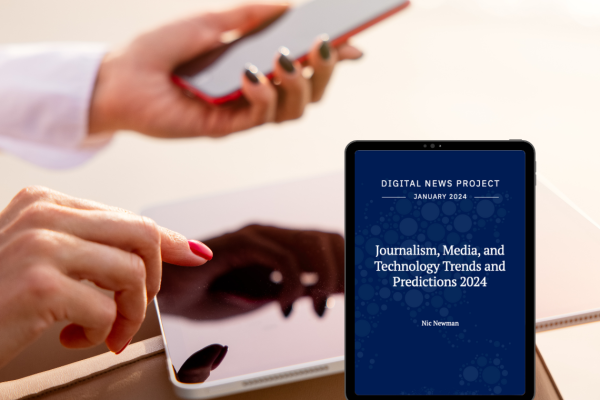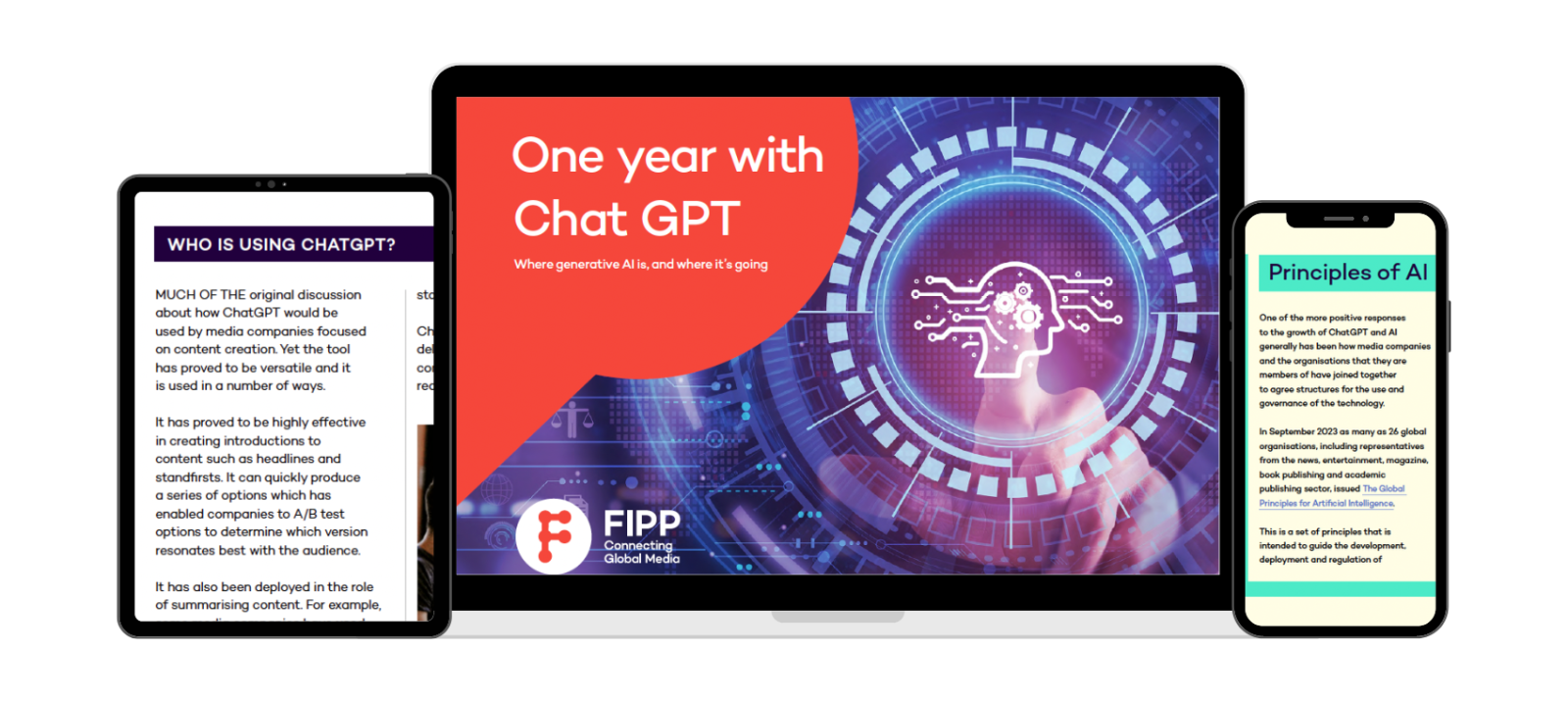Publishers pivot towards direct audiences and WhatsApp as tough 2024 looms, new Reuters Institute survey shows
A greater focus on WhatsApp, AI, newsletters and video are some of the key news media trends for 2024 to emerge from the latest survey conducted by the Reuters Institute for the Study of Journalism.
The Journalism, Media, and Technology Trends 2024 study was carried late last year and received responses from more than 300 editors, CEOs, and digital executives in 56 countries. For the second year running, less than half (47%) of those taking part said they were confident about the prospects for journalism in the year ahead, with around one-tenth (12%) expressing low confidence.
News leaders’ concerns relate to rising costs, declining advertising revenue, and a slowing in subscription growth – as well as increasing legal and physical harassment, the survey shows.
Almost two-thirds (63%) of the survey respondents say they are worried about a sharp decline in referral traffic from social media sites – a 48% drop from Facebook and 27% from X/Twitter.
As a consequence, around three-quarters (77%) say they will focus more on their own direct channels in the next year, with a fifth (22%) resorting to cutting costs and a similar proportion (20%) experimenting with alternative third-party platforms. The majority of those questioned say they’ll be putting more effort into WhatsApp and Instagram following Meta’s decision to open up broadcast channels for publishers.
The survey shows interest in video networks such as TikTok and YouTube remain strong while Google Discover is becoming a more important but volatile referral source. By contrast, publisher sentiment towards Facebook has worsened even further this year.
The majority of publishers say they will create more video, newsletters and podcasts, but roughly the same number of news articles, leaning into some of the few remaining areas of audience and advertiser growth.
A large majority of those surveyed (80%) say they will continue to invest in subscription and membership, and that it will be an important revenue stream ahead of both display and native advertising. Despite the difficult economic outlook, most of those operating a paid model report either a slight increase, or stable subscription numbers in 2023.
Continued rise of the robots
As influential as AI was last year, its disruptive power is set to only increase in 2024, and at a time of huge upheaval around the world. This year will see Search Generative Experiences (SGE) starting to roll out across the internet, along with a host of AI-driven chatbots that will offer a faster and more intuitive way to access information.
While a number of publishers have indicated they will aim to do lucrative licensing deals with AI platforms, there is not much optimism that any benefits will be equally shared – only a third (35%) of respondents believe most of the money would go to big publishers, while around half (48%) felt that, ultimately, there would be very little money for any publisher.
Using AI for back-end news automation (56%) is seen as the most important use of the technology by publishers, followed by offering better recommendations (37%) and commercial uses (28%). Publishers seem ambivalent about using AI for content creation, which is considered a huge reputational risk by over half of respondents.
According to the survey, experimental interfaces to the internet such as AR and VR glasses, lapel pins, and other wearable devices will be a feature of 2024. However, existing voice activated devices such as headphones and smart speakers, as they get upgraded with AI technologies, are considered by respondents to be the most likely option (41%) to displace – or at least supplement – the smartphone in the medium term.
FIPP member exclusive: One year with ChatGPT
AI experts, media consultants and publishing executives reveal how AI has impacted their industry and what may happen in the next few months and years.
Download now
When the going gets tough
The survey warns journalists and news organisations will have to “rethink their role and purpose with some urgency” in 2024 as critical elections, wars in the Middle East and Ukraine, and one forecast that the vast majority of internet content will be synthetically produced by 2026 have huge implications for the reliability of information, and the sustainability of the mainstream media.
While some publishers are hoping that closely fought elections in the US and elsewhere could boost consumption and interest, the cheer is tempered by the fact that any bump would be temporary and will have the potential for further erosion of trust.
According to the survey, publishers are also looking forward to an era where they might break their dependence on giant tech platforms and build closer direct relationships with customers – so expect media owners to build more barriers to content this year, as well as engaging lawyers to protect their intellectual property (IP).
News avoidance also seems to be a growing problem, with Reuters Institute research showing news consumers often feel overwhelmed by the amount of choice they already have. And while platform and business incentives are designed to maximise attention, it’s often not respectful of people’s time – meaning news organisations will have to find ways to balance the needs of business and the interests of news consumers.
A glance into the crystal ball
Predicting trends to emerge in 2024, the Reuters Institute believes even more newspapers will stop daily print production as print costs rise and distribution networks weaken, or in some cases reach breaking point.
There could be a significant shift towards bundling of digital news and non-news content as large publishers look to lock in existing customers, with all-access subscriptions set to include games, podcasts, magazines, books, and even content from other publishers.
Big tech platforms will also be leaning further into paid business models as they look to reduce their dependence on advertising. X, Meta, and TikTok will offer more premium services this year including ad-free and privacy-friendly options.
According to the survey, AI bots and personal assistants will gain more traction in 2024 with up-to-date news and sport an important use case – raising existential questions about intellectual property. Many of these bots will be personality or journalist driven as cloning technologies improve, raising legal and ethical questions.
The survey believes the battles between the AI Doomers and the AI Accelerationists will continue throughout 2024, leading to more high-profile statements about the risks to mankind and boardroom upheavals. Accelerationists will remain in the driving seat this year as governments struggle to understand and control the technology, the study predicts.










